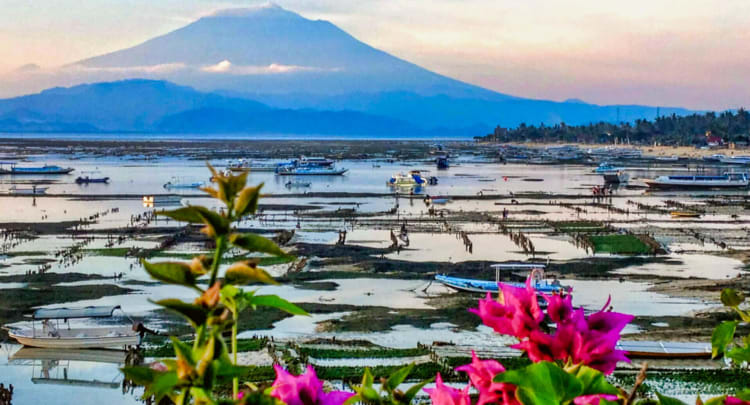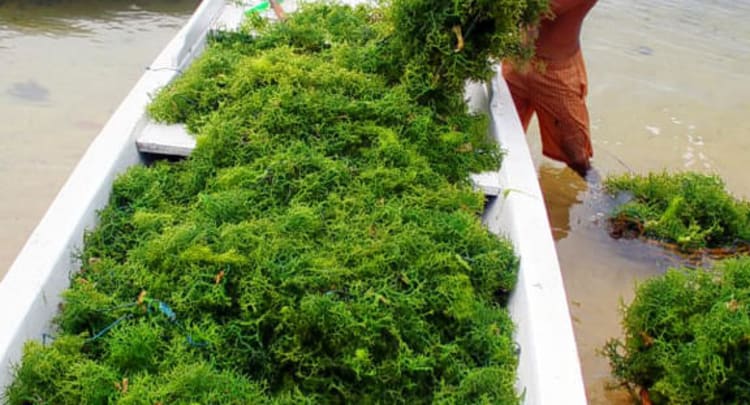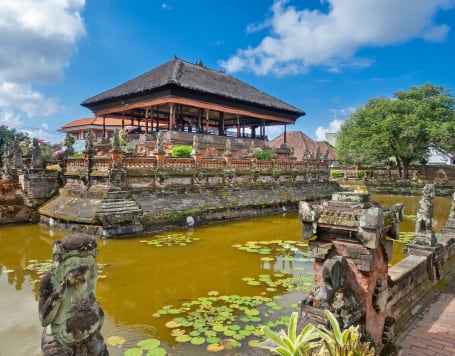The Lembongan Island Seaweed Farm, situated in the crystalline waters surrounding Nusa Lembongan, an idyllic island off the coast of Bali, Indonesia, is a testament to the profound connection between coastal communities and their marine environment. This specialized aquaculture operation is finely tuned to cultivate a diverse range of seaweed species with great precision. Nestled in the embrace of the nutrient-rich seas of this region, the farm's thriving seaweed beds serve as a testament to the delicate balance between human endeavor and the natural world.
The economic impact of this endeavor is deeply significant, as seaweed farming forms the backbone of the local economy. Providing livelihoods for countless residents of Nusa Lembongan and neighboring islands, it shapes not only financial prosperity but also cultural identity. This practice represents a sustainable form of aquaculture, one that requires no sprawling tracts of land or the application of environmentally harmful chemicals. Instead, it harnesses the rich marine resources that have sustained coastal communities for generations.
The roots of seaweed farming run deep in the local communities, handed down through the ages as a cherished tradition. This connection to the land and sea is palpable, with each generation passing on the time-honored techniques that ensure the health and vitality of the seaweed beds. The farm's offerings are diverse, encompassing varieties like Eucheuma cottonii and Kappaphycus alvarezii, which hold value in various industries. From food products to cosmetics and pharmaceuticals, the harvested seaweed has a place in local markets and international trade.
Yet, the impact of seaweed farming extends beyond economic prosperity. Some farms incorporate conservation practices, recognizing the vital role they play in preserving marine ecosystems. Additionally, a select few farms open their gates to visitors, offering a firsthand look at the meticulous process of seaweed cultivation. Guided tours and educational experiences provide insight into the intricate interplay between human endeavor and the natural world, emphasizing the crucial role seaweed farming plays in the local economy and sustainable agriculture.
While seaweed farming has challenges, including factors related to climate variability and market dynamics, concerted efforts are underway to address these issues. Ongoing research endeavors and collaborative initiatives within the community underscore the commitment to ensuring the long-term viability and sustainability of this vital industry. In essence, the Lembongan Island Seaweed Farm serves as an inspiring example of how aquaculture, rooted in tradition and nurtured by innovation, can simultaneously bolster local economies, preserve cultural heritage, and promote sustainable practices in coastal communities around the world.

























